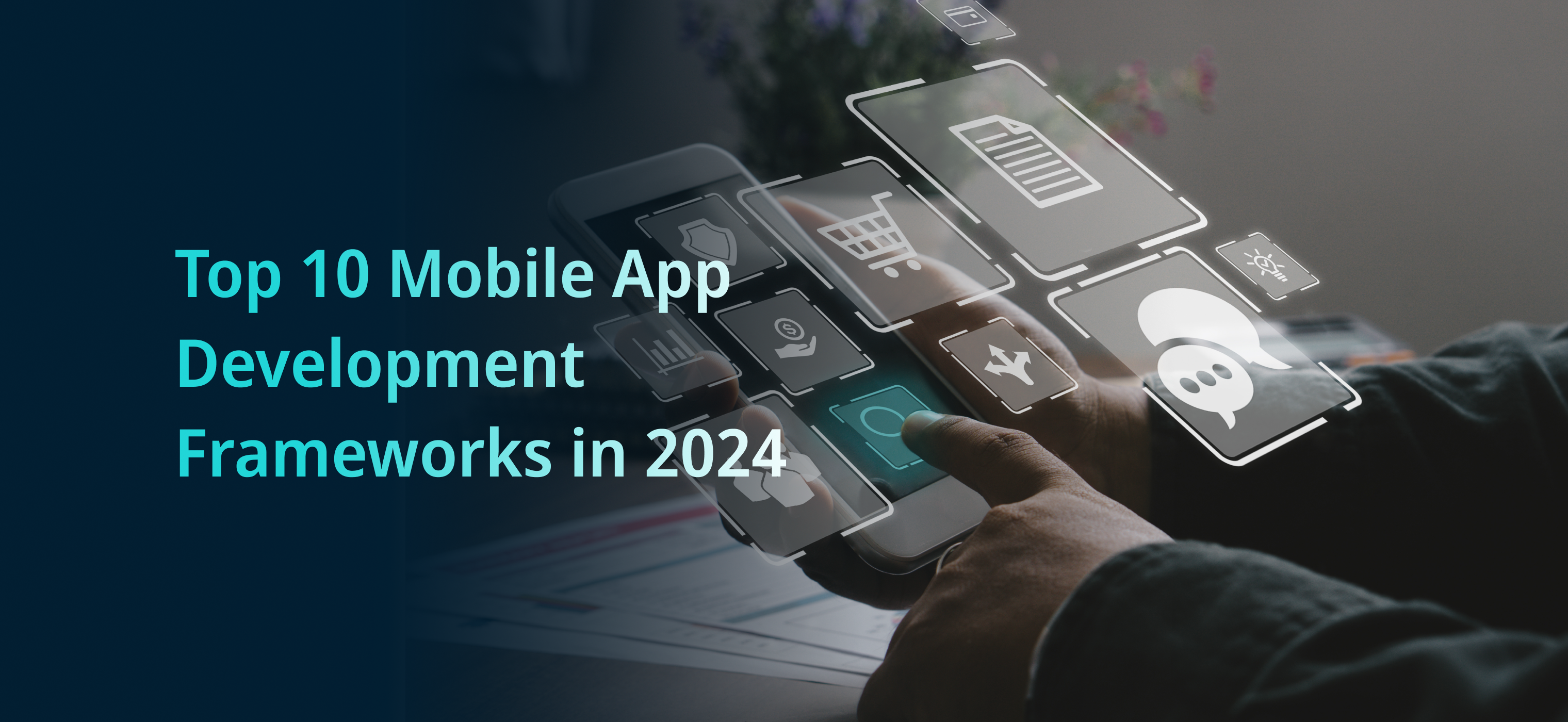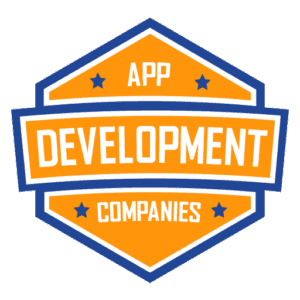The mobile app development landscape is dynamic, with new frameworks and technologies emerging regularly. In 2024, choosing the right mobile app development framework is crucial for delivering robust, high-performing, and user-friendly applications. Here, we explore the top 10 mobile app development frameworks of 2024, analyzing their features, advantages, and potential use cases.
Internet Soft, a leading mobile app development company in California, is dedicated to providing top-notch mobile app solutions tailored to your business needs. With extensive experience in leveraging the latest mobile app development frameworks, Internet Soft ensures that your app is not only functional but also innovative and scalable. Choosing Internet Soft for your mobile app development means partnering with a team of experts who understand the intricacies of the mobile app landscape.
Level up your mobile game!
Hire Android Developer now and turn your vision into reality.
1. Flutter
Flutter, developed by Google, continues to be a game-changer in the world of mobile app development. Known for its ability to create natively compiled applications for mobile, web, and desktop from a single codebase, Flutter stands out due to its expressive and flexible UI, which leverages the Dart programming language.
Features:
Hot Reload: Instantly view changes without restarting the app.
Rich Set of Widgets: Highly customizable widgets to create beautiful UIs.
Performance: Near-native performance thanks to Dart’s compilation to native code.
Advantages:
Strong community support.
Fast development cycle.
Great for creating visually appealing and performant applications.
Use Cases:
Cross-platform applications requiring a unified codebase.
Projects where UI performance and flexibility are paramount.
2. React Native
React Native, maintained by Facebook, remains a popular choice for developers looking to build cross-platform mobile applications using JavaScript and React. Its “write once, run anywhere” approach helps in developing applications for both iOS and Android efficiently.
Features:
Component-Based Architecture: Reusable components to speed up development.
Hot Reloading: Makes the development process faster and more enjoyable.
Large Ecosystem: Rich library of third-party plugins and tools.
Advantages:
Efficient code sharing across platforms.
Strong community and support from Facebook.
Robust performance for most mobile applications.
Use Cases:
Applications needing consistent performance across platforms.
Projects leveraging existing React web development skills.
3. SwiftUI
SwiftUI, introduced by Apple, is a modern UI toolkit that allows developers to build interfaces for all Apple platforms using Swift. It offers a declarative syntax, making it easier to design and build complex user interfaces.
Features:
Declarative Syntax: Simple and powerful UI code.
Cross-Platform Apple Development: Use the same code for iOS, macOS, watchOS, and tvOS.
Real-Time Previews: Instantly preview UI changes in Xcode.
Advantages:
Seamless integration with Apple’s ecosystem.
Efficient and less error-prone code.
Constant updates and improvements from Apple.
Use Cases:
Exclusive Apple ecosystem applications.
Apps requiring complex and dynamic user interfaces.

4. Xamarin
Xamarin, part of Microsoft’s development ecosystem, enables developers to build native apps for iOS, Android, and Windows using C#. It provides access to native APIs and toolkits, ensuring a near-native performance.
Features:
Native API Access: Full access to platform-specific APIs.
Shared Codebase: Use a single codebase for multiple platforms.
Integration with Visual Studio: Enhanced developer tools and debugging.
Advantages:
Strong integration with Microsoft tools and services.
High code reusability.
Support for a wide range of platforms.
Use Cases:
Enterprise applications leveraging Microsoft’s ecosystem.
Apps requiring high performance and native API integration.
5. Ionic
Ionic is a comprehensive open-source framework for building hybrid mobile applications. It utilizes web technologies like HTML, CSS, and JavaScript, along with Angular, React, or Vue, to create cross-platform mobile apps.
Features:
Web Standards-Based: Use web technologies to build mobile apps.
Rich Library of Components: Pre-built UI components to speed up development.
Capacitor Integration: Access to native device features.
Advantages:
Fast prototyping and development.
Large community and extensive documentation.
Flexibility in using different front-end frameworks.
Use Cases:
Hybrid applications with extensive use of web technologies.
Rapid development of cross-platform applications.
6. Kotlin Multiplatform Mobile (KMM)
Kotlin Multiplatform Mobile by JetBrains is gaining traction as a modern way to share code between mobile platforms. It allows you to write the business logic once and use it on both iOS and Android.
Features:
Shared Codebase: Share common code between Android and iOS.
Full Kotlin Support: Leverage the power of Kotlin for mobile development.
Native Performance: Interoperate with native code and libraries.
Advantages:
High productivity and code reusability.
Native performance and capabilities.
Active support and frequent updates from JetBrains.
Use Cases:
Projects with a focus on code sharing and reuse.
Applications needing native performance and access to platform-specific APIs.
7. NativeScript
NativeScript is an open-source framework for building native mobile apps using JavaScript, TypeScript, Angular, or Vue.js. It allows direct access to all native APIs, ensuring the performance and capabilities of native apps.
Features:
Full Access to Native APIs: Leverage platform-specific features.
Cross-Platform Code Sharing: Write once and deploy to both iOS and Android.
Rich Plugin Ecosystem: Extensive set of plugins and modules.
Advantages:
Native-like performance and capabilities.
Flexibility in using different JavaScript frameworks.
Strong community and ecosystem.
Use Cases:
Applications requiring native performance with JavaScript-based logic.
Projects leveraging existing web development skills.
8. Apache Cordova
Apache Cordova is a popular framework for building hybrid mobile applications using HTML, CSS, and JavaScript. It provides a set of APIs to access device capabilities and build cross-platform applications.
Features:
Device API Access: Access to native device features through plugins.
Cross-Platform Development: Use web technologies to build mobile apps.
Extensive Plugin Library: Wide range of plugins to extend functionality.
Advantages:
Rapid development using web technologies.
Large community and plugin ecosystem.
Simplified access to device features.
Use Cases:
Simple hybrid applications.
Projects with a strong focus on web technologies.
9. PhoneGap
PhoneGap, originally created by Adobe and now part of the Apache Cordova ecosystem, allows developers to build mobile applications using HTML, CSS, and JavaScript. It provides a simple approach to building cross-platform apps.
Features:
Web Technology-Based: Use HTML, CSS, and JavaScript.
Extensive Plugin Library: Leverage a wide range of plugins for additional functionality.
Cross-Platform Development: Build once and deploy to multiple platforms.
Advantages:
Quick development cycles.
Extensive support for web technologies.
Strong community and resources.
Use Cases:
Prototyping and developing hybrid applications.
Projects with existing web development expertise.
10. Sencha Ext JS
Sencha Ext JS is a comprehensive framework for building cross-platform mobile and web applications using JavaScript and HTML5. It provides a rich set of UI components and tools to develop data-intensive applications.
Features:
Rich UI Components: Extensive library of UI components.
Data-Driven Development: Powerful data package for managing data.
Cross-Platform Support: Build applications for web and mobile platforms.
Advantages:
High-performance UI components.
Robust tools for data management and visualization.
Comprehensive support and documentation.
Use Cases:
Data-intensive applications.
Enterprise-level applications requiring rich UI and data handling.
In the end
Choosing the right mobile app development framework in 2024 depends on your project requirements, development skills, and target platforms. Whether you need high performance, extensive code reuse, or rapid development cycles, the frameworks listed above offer a variety of options to meet your needs. As mobile technology evolves, these frameworks continue to innovate, providing developers with powerful tools to create the next generation of mobile applications.
As a leading software development company in California, Internet Soft is committed to delivering high-quality mobile applications that help businesses thrive in a competitive market. Whether you’re a startup looking to make a mark or an established enterprise aiming to enhance your mobile presence, Internet Soft is the partner you need for successful mobile app development.
By leveraging the expertise of Internet Soft, a premier mobile app development company, you can be assured that your app will be built with the latest technologies, delivering an exceptional user experience that drives engagement and growth.
ABOUT THE AUTHOR

Abhishek Bhosale
COO, Internet Soft
Abhishek is a dynamic Chief Operations Officer with a proven track record of optimizing business processes and driving operational excellence. With a passion for strategic planning and a keen eye for efficiency, Abhishek has successfully led teams to deliver exceptional results in AI, ML, core Banking and Blockchain projects. His expertise lies in streamlining operations and fostering innovation for sustainable growth








